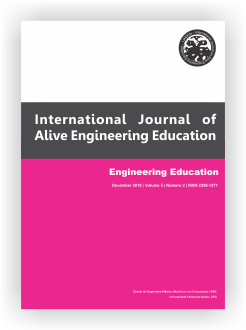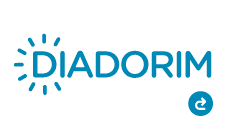Evaluation of Academic Experience in Learning Education over Simulators Softwares
DOI:
https://doi.org/10.5216/ijaeedu.v5i2.54716Palavras-chave:
ICAEEDUResumo
This article presents an overview of simulated education through computational tools.
In recent years, educational institutions have been working even harder in the application of virtual teaching and learning environments, which are available to different undergraduate and technical courses.
During the learning process, the student is invited to try out some forms of different subjects and learning contents.
The use of technologies gained a great deal of space in these institutions in order to allow students to experiment different theories in practical settings.
Simulators allow students to conduct hands-on experiments without the need for real environments, which consequently generates costs and also a planning effort.
This paper presents a study of the application of software simulators in different technological courses.
After the application of the simulators, the students were invited to answer a Quiz in order to understand the effectiveness of the use of the simulators in the learning of each one.
Results show that students considered the use of simulators to be advantageous and important, but it is still not enough to suppress the use of practical classes in real environments.
Referências
GOMES, L. F. Distance education in Brazil: perspectives and challenges. Avaliação: Revista da Avaliação da Educação Superior (Campinas), v. 18, n. 1, p. 13-22, 2013.
FERREYRA, M. M. et al. At a crossroads: higher education in Latin America and the Caribbean. World Bank Publications, 2017.
SILVA, C. A. G., LIMA, R. U. T., OLIVEIRA, Z. M. D. S., PADILHA, A. W., dos SANTOS, E. L., SANTOS FILHO, H. T., and PEDROSO, C. M. Análise da Influência da Formação de Ensino Médio no Desempenho Acadêmico de Estudantes de Engenharia. International Journal on Alive Engineering Education, v. 3, n. 2, p. 65-78, 2016.
DILLENBOURG, P., SCHNEIDER, D., SYNTETA, P. Virtual learning environments. In: 3rd Hellenic Conference" Information and Communication Technologies in Education". Kastaniotis Editions, Greece, 2002. p. 3-18.
SILVA, C. A. G., SANTOS, E. L., PEREIRA, K. L. R., COELHO, M. M. and PELACINI, D. A. F. Simulation Laboratory for Learning in Electronic Digital Improvements of Learning Electrical Engineering. International Conference on Alive Enginnering Education (ICAEEDU). Puerto Iguazú, Misiones, Argentina, 2018.
ALONSO, F. et al. An instructional model for web?based e?learning education with a blended learning process approach. British Journal of educational technology, v. 36, n. 2, p. 217-235, 2005.
PAZOS, J. et al. A virtual classroom based on academic memories. Proceedings of Information Society and Education: Monitoring a Revolution, p. 87-92, 2002.
FELDER, R. M. et al. Learning and teaching styles in engineering education. Engineering education, v. 78, n. 7, p. 674-681, 1988.
ARMSTRONG, S. J. and FUKAMI, C. V. The SAGE handbook of management learning, education and development. Sage, 2009.
PRINCE, M. J., and FELDER, R. M. (2006). Inductive teaching and learning methods: Definitions, comparisons, and research bases. Journal of engineering education, 95(2), 123-138.
FELDER, R. M. and SILVERMAN, L. K. Learning and teaching styles in engineering education. Engineering education, v. 78, n. 7, p. 674-681, 1988.
FRY, H., KETTERIDGE, S. and MARSHALL, S. A handbook for teaching and learning in higher education: Enhancing academic practice. Routledge, 2008.
SQUIRES, D. and PREECE, J. Predicting quality in educational software. Interacting with computers, v. 11, n. 5, p. 467-483, 1999.
CANT, R. P. and COOPER, S. J. Simulation?based learning in nurse education: systematic review. Journal of advanced nursing, v. 66, n. 1, p. 3-15, 2010.
REILLY, A. and SPRATT, C. The perceptions of undergraduate student nurses of high-fidelity simulation-based learning: A case report from the University of Tasmania. Nurse Education Today, v. 27, n. 6, p. 542-550, 2007.
MCGAGHIE, W. C., ISSENBERG, S. B., PETRUSA, E. R. and SCASELE, R. J. Effect of practice on standardised learning outcomes in simulation?based medical education. Medical education, v. 40, n. 8, p. 792-797, 2006.
BROWN, J. F. Applications of simulation technology in psychiatric mental health nursing education. Journal of Psychiatric and Mental Health Nursing, v. 15, n. 8, p. 638-644, 2008.
ARAUJO, R. T. S.. Medeiros, F. N. S., Oliveira, B. F. C. and Araujo, N. M. S. Interactive Simulator for Electric Engineering Training. IEEE Latin America Transactions, v. 14, n. 5, p. 2246-2252, 2016.
WEINGARTNER, E., VOM LEHN, H. and WEHRLE, K. A performance comparison of recent network simulators. In: Communications, 2009. ICC'09. IEEE International Conference on. IEEE, 2009. p. 1-5.
NIKOLIC, B., Radivojevic, Z., Djordjevic, J. and Milutinovic, V. A survey and evaluation of simulators suitable for teaching courses in computer architecture and organization. IEEE Transactions on Education, v. 52, n. 4, p. 449-458, 2009.
JANITOR, J., JAKAB, F., KNIEWALD, K. Visual learning tools for teaching/learning computer networks: Cisco networking academy and packet tracer. In: Networking and Services (ICNS), 2010 Sixth International Conference on. IEEE, 2010. p. 351-355.
BALAMURALITHARA, B., WOODS, P. C. Virtual laboratories in Engineering education: The simulation lab and remote lab. Computer Applications in Engineering Education, v. 17, n. 1, p. 108-118, 2009.
SU, B., WANG, L. Application of Proteus virtual system modelling (VSM) in teaching of microcontroller. In: E-Health Networking, Digital Ecosystems and Technologies (EDT), 2010 International Conference on. IEEE, 2010. p. 375-378.
TAHEAR, M. T., and Khan, A. S. Effectiveness of Simulation versus Hands-on Labs: A Case Study for Teaching an Electronics Course. ASEE Annual Conference and Exposition, Seattle, Washington. June, 2015.
MA, J. and NICKERSON, J. V. Hands-on, simulated, and remote laboratories: A comparative literature review. ACM Computing Surveys (CSUR), v. 38, n. 3, p. 7, 2006.
PLICE, R. K. and REINIG, B. A. Leveraging alumni and business community relations to assess the information systems curriculum. Journal of Education for Business, v. 84, n. 3, p. 142-150, 2009.
Downloads
Publicado
Edição
Seção
Licença
Ao submeter eletronicamente um artigo na Revista Eletrônica Engenharia Viva, o responsável pela submissão:
a) Declara que o documento em questão é um trabalho original, e que detém prerrogativa de conceder os direitos contidos nesta licença. Declara também que a entrega do documento não infringe, tanto quanto lhe é possível saber, os direitos de qualquer outra pessoa ou entidade.
b) Se o documento em questão contém material do qual não detém os direitos autorais, declara ter obtido autorização do detentor dos direitos autorais para conceder à Universidade Federal de Goiás os direitos requeridos por esta licença, e que esse material cujos direitos são de terceiros está claramente identificado e reconhecido no texto ou conteúdo do documento em questão.
c) Declara ainda que qualquer pessoa nomeada como autor ou co-autor do documento tem consciência do fato e concorda em ser assim nomeado.
Termo de Autorização
Na qualidade de responsável pela submissão do documento, autorizo a Escola de Engenharia Elétrica, Mecânica e de Computação da Universidade Federal de Goiás (EMC/UFG) a disponibilizar a obra, gratuitamente, por meio do Sistema Eletrônico de Editoração de Revistas da UFG (SEER/UFG) ou na forma impressa, sem ressarcimento dos direitos autorais, de acordo com a Lei nº 9610/98. Fica permitido, a leitura, a impressão e/ou download, a título de divulgação da produção científica brasileira. Qualquer uso da obra que não o autorizado sob esta licença ou pela legislação autoral é proibido.



